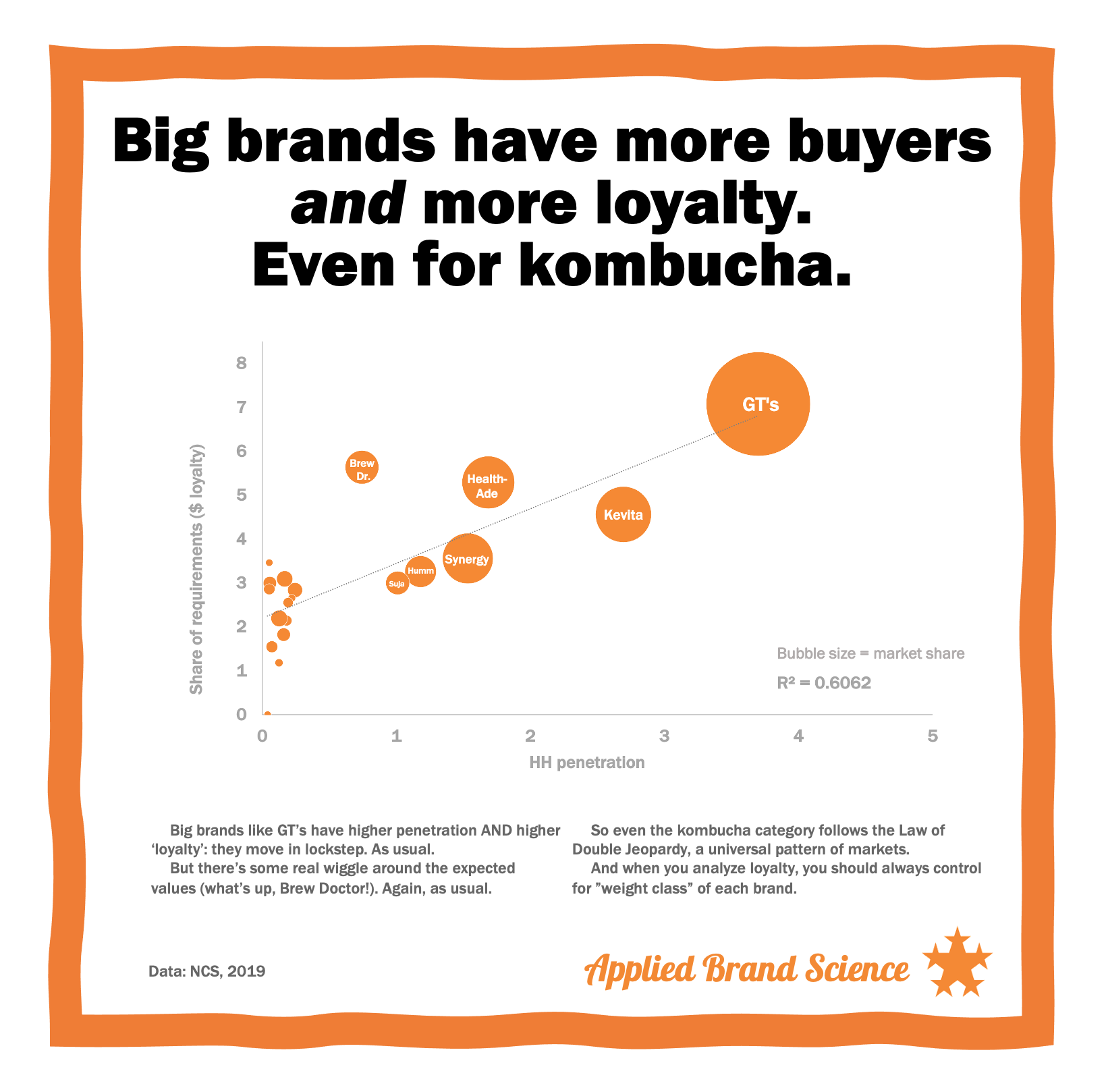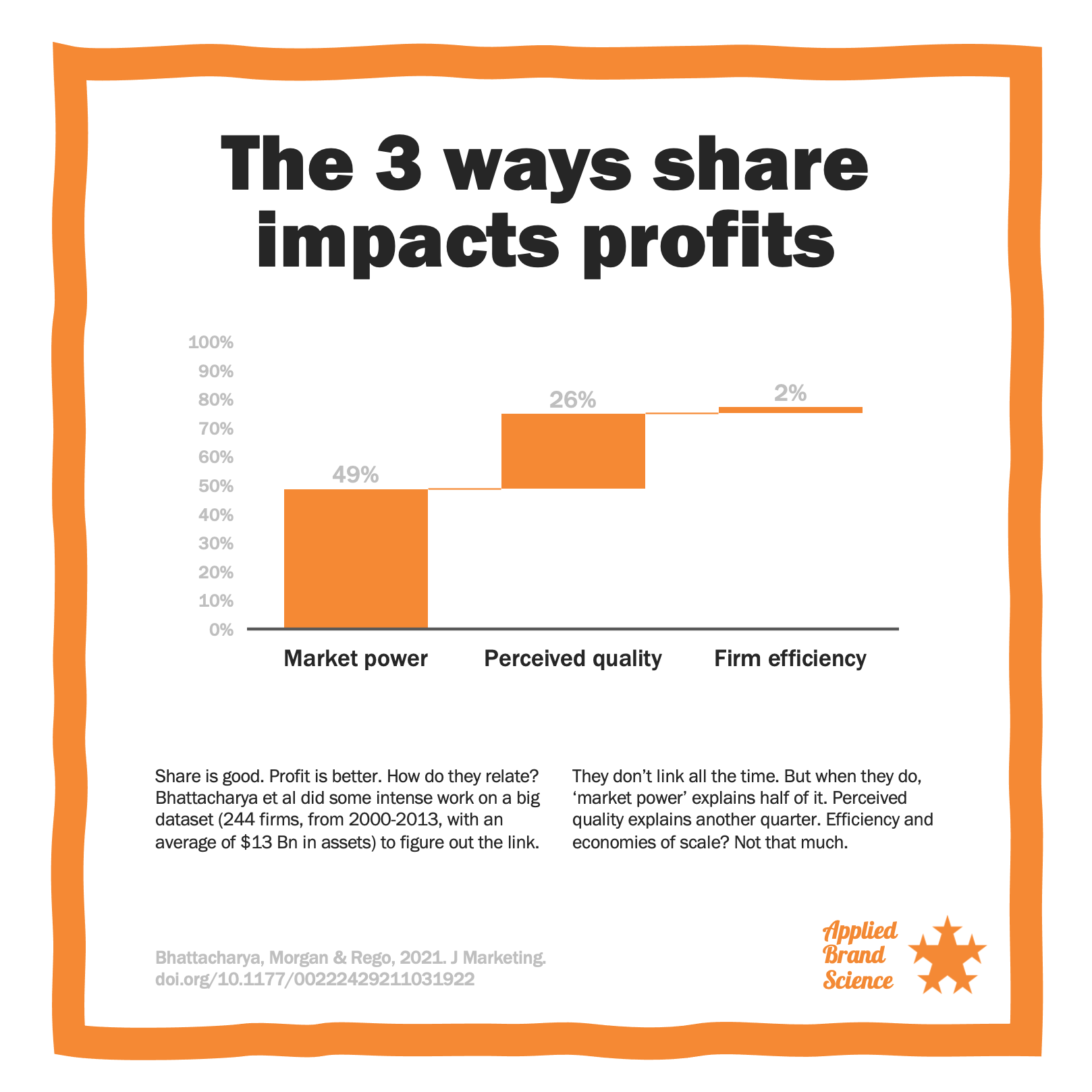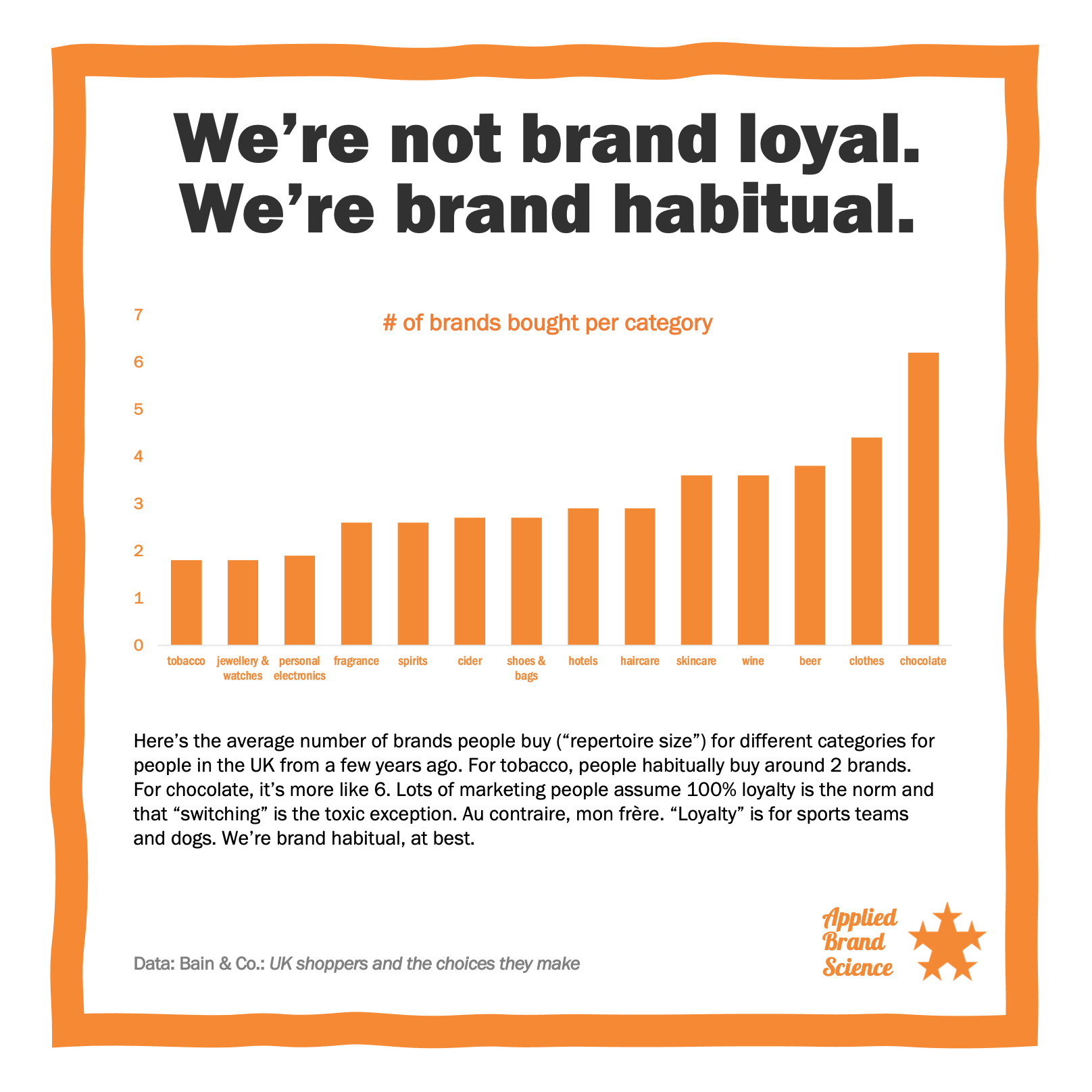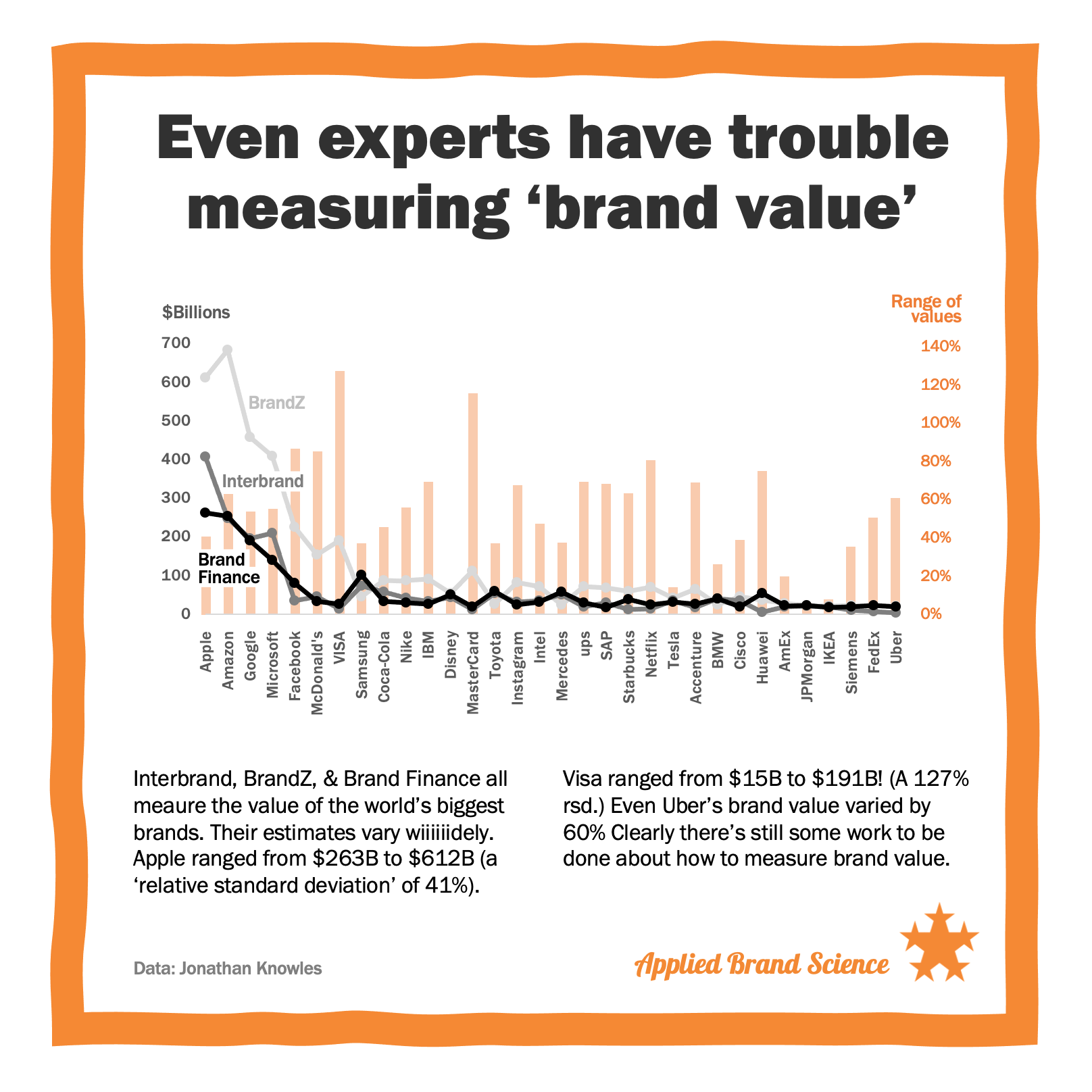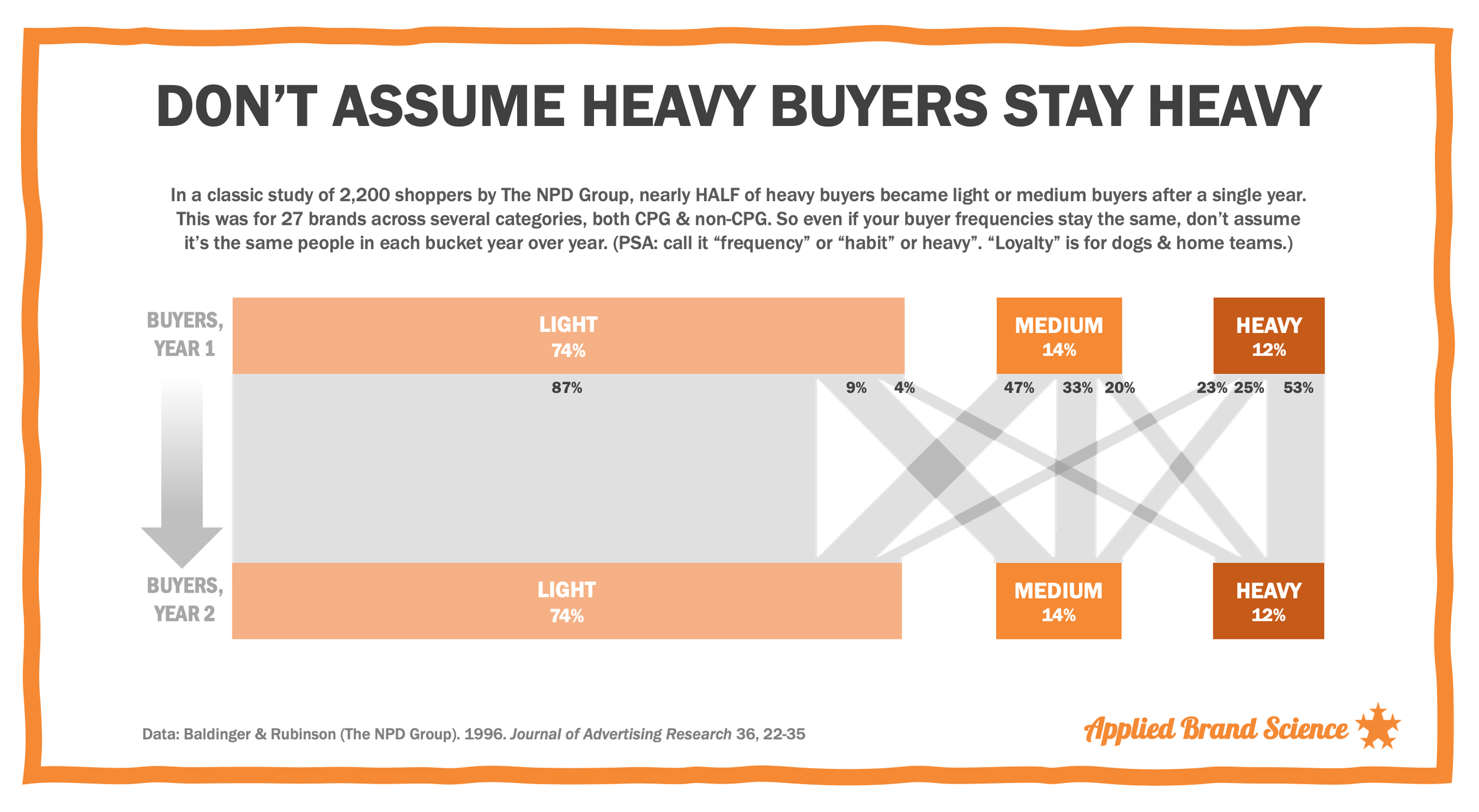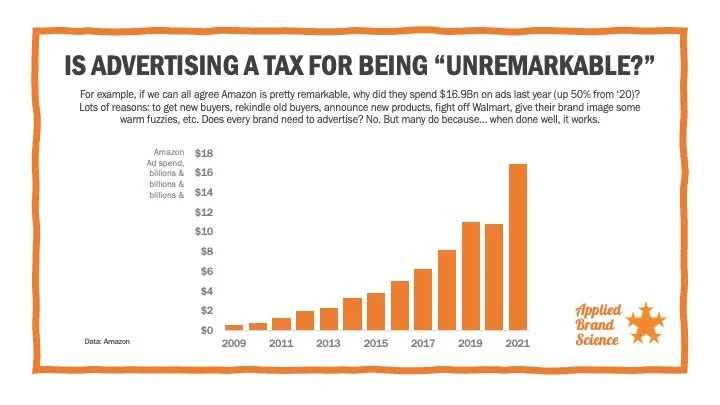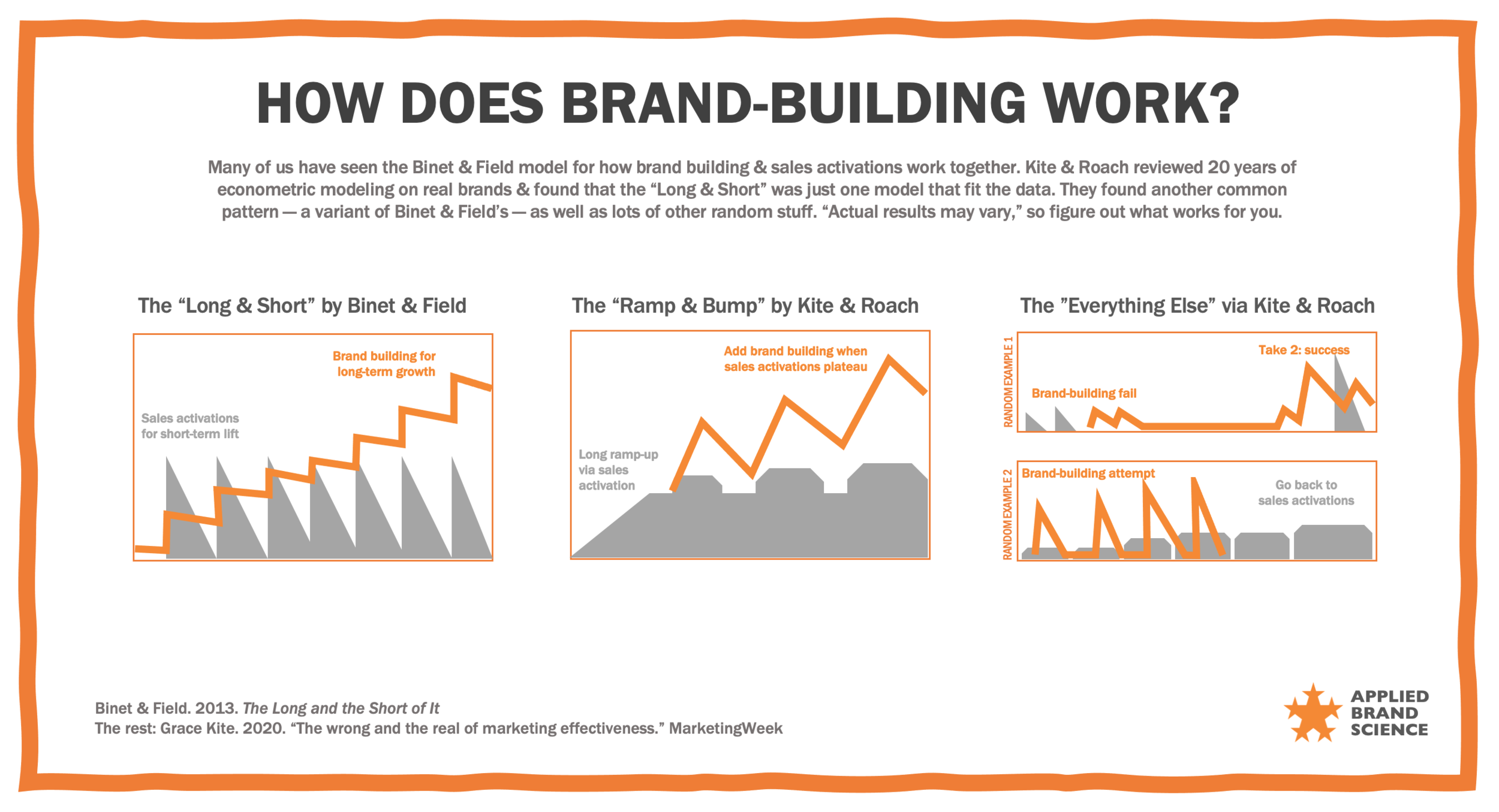
Your source for knowledge, reports, thought leadership, and other tomfoolery. No fluff. No folklore. Just sticky, science-backed brand truth.
The Most ABSurd Blog
Are There Any Niche Brands with Crazy Loyalty?
We love the myth of the tiny brand with die-hard fans—but in kombucha and beyond, the data say big brands win on loyalty too.
How Does Market Share Influence Profits?
Common sense says bigger share means bigger profits—but the data doesn’t exactly agree.
Are People Actually Brand "Loyal"?
Bain and Kantar found that brand ‘loyalty’ is mostly a myth—most people buy from a repertoire, not a favorite.
How Valuable is Your “Brand”?
Interbrand, BrandZ, and Brand Finance mostly agree on which brands are strongest—but not on what those brands are actually worth.
Do Heavy Buyers Stay Heavy?
NPD found that nearly three-quarters of buyers are light buyers—the universal Banana Curve strikes again.
Is Advertising a "Tax for Being Unremarkable"?
If this is true, why is Amazon — clearly a pretty remarkable company, a TECH company, and seemingly ubiquitous — why is it the largest advertiser in the US today, spending $16.9Bn last year on ads?
How does brand building work?
Grace Kite and Tom Roach found the classic ‘long and short’ pattern holds up—but with a twist I call the ‘ramp and bump.’

